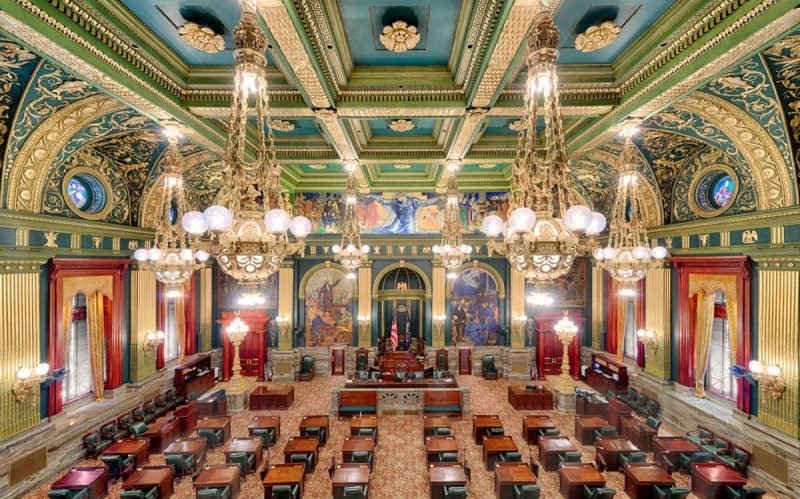By Christen Smith | The Center Square
(The Center Square) – Pennsylvania lawmakers bid adieu to Harrisburg Wednesday for an unanticipated five-week reprieve from the legislative session schedule.
Just one day after Gov. Josh Shapiro’s inauguration, the Senate gaveled out until Feb. 27 – effectively scrubbing a calendar that had once been packed with session days throughout the winter and into the spring.
The House, meanwhile, exists in a state of limbo as leaders forge a compromise on reorganization rules in a six-member bipartisan working group that convened for the first time Tuesday. Since House Speaker Mark Rozzi, D-Temple, took over the chamber earlier this month, partisan disagreements continue blocking the adoption of operating rules, committee assignments and legislative votes.
Kate Flessner, spokeswoman for Senate Majority Leader Joe Pittman, R-Indiana, said the turmoil in the House – coupled with uncertainties around Philadelphia District Attorney Larry Krasner’s impeachment trial – ground business in the upper chamber to a halt.
“Given that the House has not yet organized their chamber, our options for fully addressing legislative issues are limited at this time,” she said Wednesday.
The chamber’s ominous departure suggests a swift reconciliation of several conflicts plaguing the House may not materialize any time soon.
The tension boiled over last week when lawmakers couldn’t agree to move forward with a special session – called by former Gov. Tom Wolf – to pass legislation opening a two-year window for adult survivors of childhood sexual abuse to file civil suits against their perpetrators.
Rozzi – a sexual abuse survivor and the leading legislative voice in support of the policy – wants a vote on the issue soon, though Republicans argue the courts would invalidate any law they may pass.
Instead, House Republican Leader Bryan Cutler, R-Quarryville, believes the chamber should approve a constitutional amendment – effectively eliminating legal challenges – for voters to decide the fate of in the May primary.
The amendment, in addition to two others that would enact voter ID and make regulatory reforms designed to rein in gubernatorial power, passed in the Senate last week along party lines.
Nicole Reigelman, spokeswoman for House Democratic Leader Joanna McClinton, D-Philadelphia, criticized the delay in a statement to The Center Square on Wednesday.
“The House Democratic Caucus’s top priority remains ensuring that survivors of childhood sexual assault get the opportunity to seek justice are not leveraged for partisan political gain,” she said.
The working group, she said, continues its “active consideration” of both this issue and establishing House rules.
“We will allow the workgroup the time it needs to thoughtfully complete their task and look forward to seeing the result of their discussions,” she said.
Rozzi, himself, appeared to temper expectations in an interview with the Associated Press on Tuesday, saying he’ll see “where it goes” with the working group, who must craft rules that can win a majority of votes in the House.
The House gridlock makes this task uniquely challenging. As it stands, Republicans maintain a 101-99 advantage that will shift to a 102-100 Democratic majority should the party hold onto three open seats they are favored to win in the Feb. 7 special election. It will be the first time in more than a decade that Democrats take control of the House, and with it, the legislative agenda.
